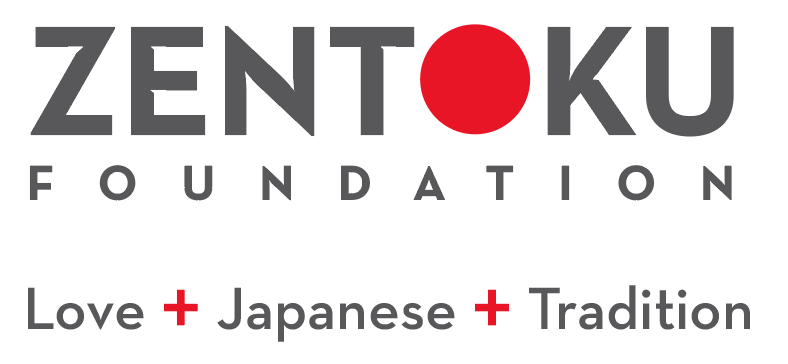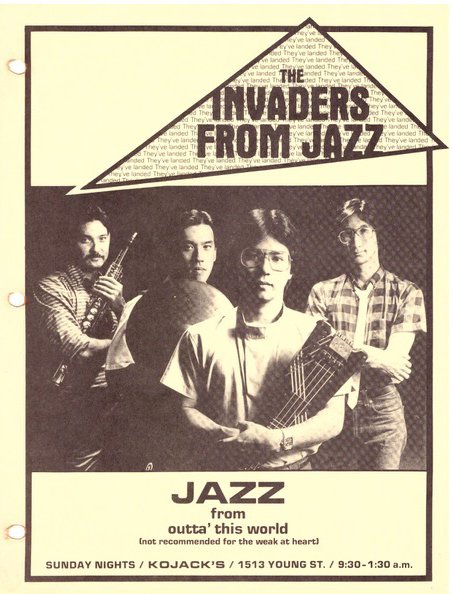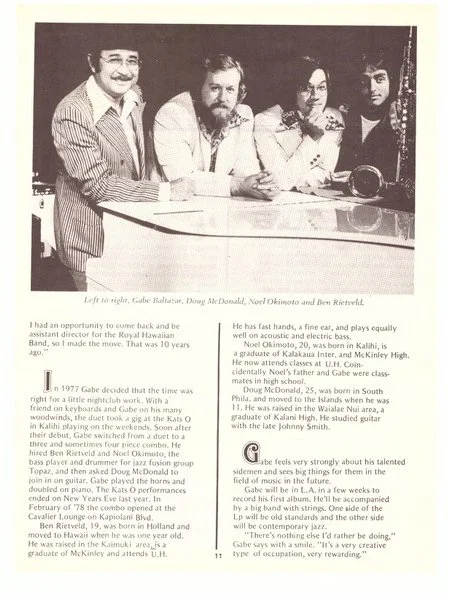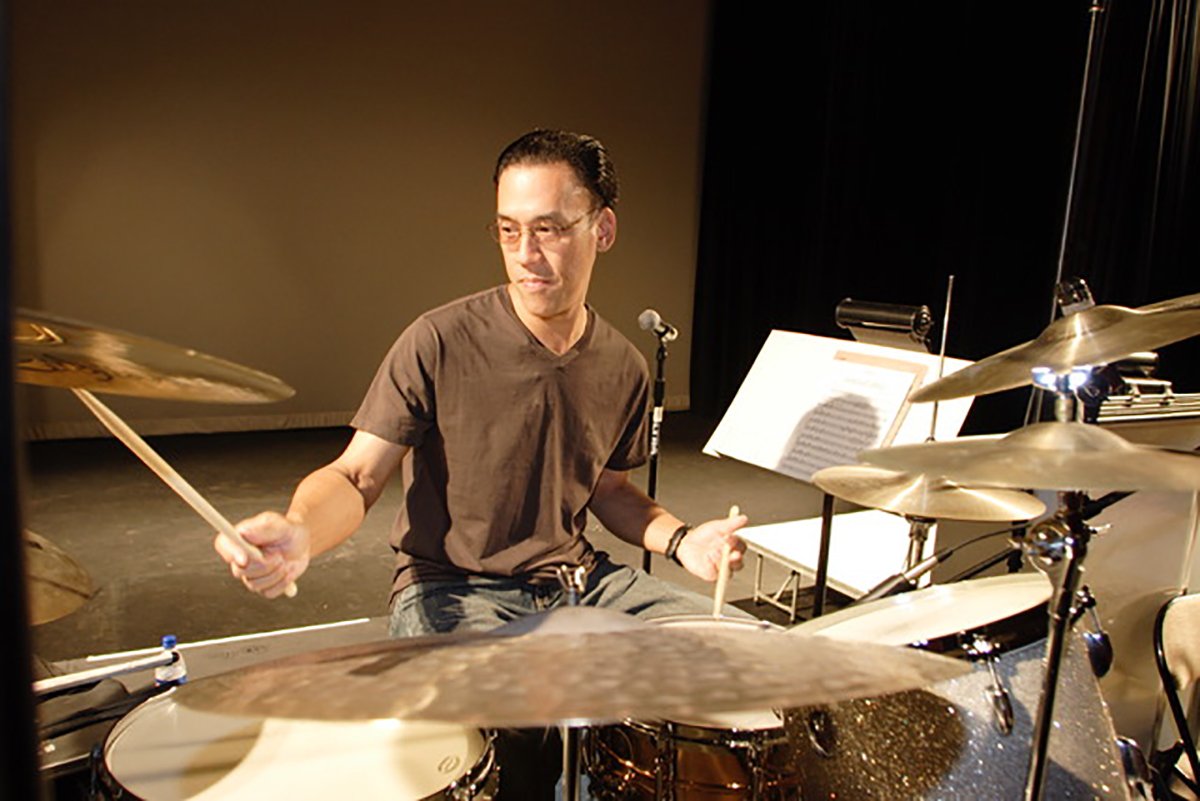Noel Okimoto: Rhythmic Roots
By Nick Kurosawa
The genre of Jazz is usually associated with places like New Orleans or New York where musicians are steeped in the roots of the genre, but the authenticity of jazz permeates the world, perpetually inspiring music and players.
In the few interviews we have of Pianist Bill Evans he touches on how improvisation and jazz are synonymous. There is a basic framework and theory to a song all being interpreted by the player and the interpretation is what makes jazz spectacular. Evans recounts how he is called to “make it more musical every time.”
When improvising, a musician is called, not to think of their fundamentals or music theory, instead let those fundamentals become second nature, laying a bed to exude pure emotion and intent. This is a truth of all music, to emote through the framework of theory, and that simply put, is jazz.
Honolulu, Hawaii
When thinking of music of the islands there are antiquated stereotypes that populate the mind. Imagery of harmonized falsetto voices atop a rhythmic amalgam of stringed instruments in various tunings “chalangalang-ing” seem to be most popular. This was accurate at a time but even when those stereotypes were at their height, various kinds of music were simultaneously calling the Pacific home, even jazz. Amidst that pigeon-holed interpretation of the islands there is a man and his family, steeped in jazz, enough to want to propagate it in isolation.
Noel Okimoto is a world renowned jazz musician from Honolulu, Hawaii. He has played with the Royal Hawaiian Band for over 30 years. An accomplished percussionist, Okimoto has recently turned his attention to the vibraphone and hopes to put out an album of original music somewhere in the near future. He comes from a family of six children and he is number five. Altogether there is: Gordon, Sherry, Randall, Michelle (Michi), Noel, and his sister Carmen. His parents were both music lovers although raised in houses with different views on its utility.
Noel’s mother Alice grew up in a more westernized household where music had taken shape as a valid past-time. His father George on the other hand had grown up in a traditional Japanese home and if he wanted to learn to play music, he had to do it on his own. Championing his own path George was in love with jazz and took an interest in the trumpet. He held odd jobs and eventually bought himself a horn and began to learn to play. Alongside another local music legend, Gabe Baltazar, George and Gabe ruled their sections at Washington Intermediate. Noel’s father at first chair trumpet and Balthazar at first chair clarinet. This is seemingly the start to the family’s epigenetic love affair with music. The contrasting musical learning environments of Noel’s parents created a garden for one of Hawaii’s greatest percussionists to prosper.
George and Alice Okimoto started their family quite young. As a new teenage parent, George turned his attention away from the trumpet to the drums, but with a new family a drum set was out of the question, so like his childhood self, he worked extra to find the funds. A handful of years into his twenties he finally got his instrument and excitement and dedication ensued. Holding down three or more jobs to keep a roof over their heads and moonlighting as a drummer for local acts like Ohta-San and The Ebb Tides was a rigorous schedule but Noel’s father’s love for music never waned. His fervor for music was a major source of inspiration for Noel and the musical environment he was raised in began to shape him. On some days George would tote Noel and his younger sister Carmen afterschool to venues to help set up his drums before a gig, exposing Noel to the underbelly of the music world. Seeing how the sausage is made makes for an interesting interpretation of what a musician's life actually is. But by far the biggest inspiration was that at home, the drums were housed in the room shared by all the boys in the family. I imagine a young Noel propped up on his bed mesmerized by his father’s ability to divide time. Those countless hours enamored by his father would inform his talent within himself. The self discovery through observation will be key in shaping Noel's character as a musician and person.
Noel was the youngest of three boys and wasn’t involved in many extracurricular activities, so he would often be at home alone waiting for someone to come home. The large chunks of unsupervised time and off limit drum set could only lead to one thing, playing the drums, naturally. He could just sneak in a few hits and no one would know, right? The thing about drums is that they are loud in spirit and someone is bound to hear but that is of no consequence to a precocious child. Noel vividly recollects, at 10 years old his father was out working his infinite cycle of jobs and he got off his bed sat on the drum throne, picked up the sticks and started playing, imitating his father; dividing time. From that moment albeit not certain as to how, he knew he wanted to do this for the rest of his life. Unsure of what it all meant he continued to sneak in practice while his dad was out working, further solidifying his desire to play until one fateful day in the fifth grade.
Noel’s father was recovering from back surgery at Kuakini Hospital which meant the drums had no keeper. Noel attended Kapalama Elementary School in Kalihi and uncharacteristically decided to sign up for the end-of-the-year talent show. Panicked for ideas and settling on the secret devotion to the drums he harbored, he deliberated. With his father laid up in the hospital, how was he going to ask to borrow the drums? Children weren’t allowed into hospital rooms at that time so he eventually asked his mother to relay the pensive message.
His mother obliged knowing the reaction to come and was met with a volcanic eruption sequestered to a hospital bed. Noel’s father was furiously connecting the dots as to what he had done and now what he had the audacity of asking to do.
Eventually with wise counsel from his wife Alice, George “didn’t say no” (the local Japanese equivalent of a yes) and enlisted an older brother to escort Noel and the drum set to his school for the show. Playing along to vinyl records he performed two songs, “My Hawaii” by The Rascals and “Summer Nights” by local legend Ohta-San, for whom Noel’s father played the drums. Noel was so gifted at fifth grade that he could perform a complicated Bossa Nova beat. The syncopation of the rhythm did not feel natural to most drummers outside Brazil and for a 10-year-old with practice restrictions, that was an amazing feat. George Okimoto soon returned from the hospital and asked Noel all about the talent show. “Which songs did you play? Show me” were the only things to come out of George’s mouth before leading Noel to the drum set. Amazed and realizing he would be sequestered till his back healed, George asked: “How did you learn that?”
“How did you learn that?”
“I listen to you practice”
“I listen to you practice” Noel retorts. Convinced with the obvious dedication his son had he began teaching him the fundamentals of the drums; dividing time.
Three months later with his back fully healed, George began gigging again with The Ebb Tides. He brought Noel along as his roadie like usual only this time was not like before. The band’s leader Larry Fukunaga asked if Noel wanted to sit in on the drum set while his dad took a break. From that night on he was going to all the gigs with his father and playing on a handful of tunes. Two months into being ”second chair,” his father leaves The Ebb Tides to start his own band and Noel replaces him as drummer at 11 years old. He joined the musicians union and got a child labor permit to work with the group and that was the start of Noel Okimoto, his professional career and becoming a musical great.
Noel has performed with The Royal Hawaiian Band for over 30 years only recently retiring to focus on his wife and his solo music career. Staying in Hawaii all these years has helped him to sculpt a comfortable balance between fame and anonymity. The same isolation that fueled his curiosity to start playing drums as a child has kept him focused on the things that matter as an adult. Noel considers himself lucky that he could strike a balance in life that allows him to live comfortably and still do the activity he loves most, music.
Most recently he turned his attention away from the drums over to the vibraphone and has produced a body of original songs he hopes to release, marking his first release of original tunes. To say Noel Okimoto is an unconventional artist is an understatement. To carve out a life that provides the “right” amount of wealth to continue doing what you love is a difficult business model for any artist. Usually musicians are taught to reach for the stars and to equate fame to success but nothing is more successful than being able to do the thing you love without compromising your character.
As a musician myself I look up to musicians that can stay true to their roots and still provide for themselves and their families. In a world where everyone wants to be famous it is refreshing to know there are people who are thriving in normalcy.











